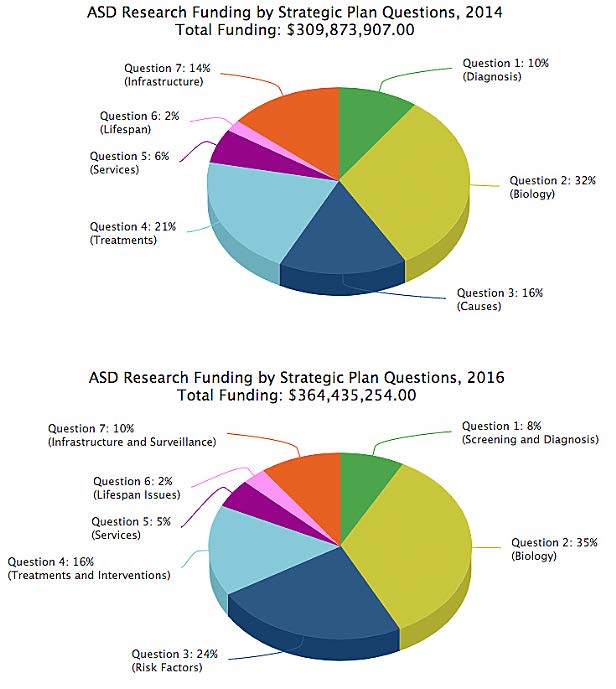BY MICHAEL JOHN CARLEY
Many of us, as parents of spectrum kids, participate in "autism walks" or other events to raise money for autism research. But we don't volunteer anywhere near the same capacity for entities that directly impact our children – our kids' schools or service agencies. Why?
Well, the research walks are well-organized, their fundraising component is linked to spreading awareness, we're thanked adequately by the walk organizers (who engage us with empathy for our situations), the events are fun, we get to spend time with folks enduring similar experiences, and let's face it – our relationships with the schools and agencies that serve our kids can be contentious. We too often have to fight them to get what our kids need, deserve, and are legally entitled to. So given these parameters, our walking (infinitely more) for research makes sense.
But looking through another, perhaps painfully-obvious lens? To start, there's that issue of "entities that directly impact our children." Of the more than 1,300 funded research projects listed by the Interagency Autism Committee (IACC)1 in 2014 (which is when I first looked into this issue for the Huffington Post,2 a comparatively small amount of funding, as shown by the chart below, goes to towards "services," and "lifespan" (two of the seven designated areas wherein autism research – specifically geared towards the living – is defined). Eight percent, to be exact.
The majority goes toward early childhood screening tools, or examining the biological, environmental, and genetic impact on autism with an eye toward causation and/or exacerbation. Furthermore, non-profit research orgs (with the exception of the Organization for Autism Research3) devote even less of a percentage to studies that would impact present-day families.
By 2016, the last year in which statistics were released in this format, little had changed (in fact, the 8% was reduced to 7%). It also makes it extremely disingenuous, therein, for these organizations to tell us that walking for their walks will benefit our children, when most of the knowledge we'll gain from this type of research – nerve synapses and serotonin levels – may not impact a working class family with a child with autism… for 30 years!
That all said, the majority funding will result in worthy knowledge, research of a dramatically-higher scientific value than studies looking at educational strategies, or hypotheses that ask "How many spectrumites out there need housing?" The higher-brow knowledge will teach us about areas far outside the autism world – the human brain, environmental effects – even if it results in information that wouldn't trickle down in any meaningful way to the average, middle-class families for decades. Part of the reason why our relationships with our kids' public schools and state-funded service providers are sometimes as volatile as they are has to do with the fact that these entities are too often dramatically under-funded. School boards that shudder at spending money on a child's individualized needs, to our surprise, are not necessarily composed of bad people. Education budgets are continuously cut, especially in (mostly red) states that wish to see less overall government and public programs (such as the brainless "voucher system" in Wisconsin). Not coincidentally, these are states that usually produce little tax revenue. Public school employees have been through the ringer, operating without the same resources as others, and it shows. And until these officials don't have to continuously base their decisions around what will have the least negative impact, they will not be able to muster the same smiles and programs as those enjoyed by walk organizers. Service agencies even more so, with their horrific headlines of underpaid, uneducated and poorly-researched orderlies who become implicated far too often in the deaths of their residents (especially in my former state of New York). Often these are well-meaning but under-equipped organizations that, from top to bottom, simply cannot afford to hire good, qualified people. And even in the cases where they can, and a slimy CEO instead wishes to protect his high salary by skimming off the bottom? Greater funding would increase the accountability and monitoring of such agencies so that such misappropriation of funds would not go unnoticed. As parents, we frequently assume that we should be primed for battle with these entities – we are not culturally conditioned to assist them – and too often this assumption is accurate. But if I learned anything in my pre-autism days at the United Nations, it is that economics rules almost everything. And one fiscal fact worth noting is that there is a class distinction here: Most autism research organizations were founded by parents of spectrum kids who have all of their service needs taken care of. Dare I say it, they are wealthier than most of us. And were they not, unmet service needs for their kids would be their top priority as well.
As non-wealthy parents of spectrum kids, we need to have a better understanding too, of the current explosion in autism research. There are significant scientific advances that are both fascinating, and that might even qualify as legitimate breakthroughs. But there is also trendiness – an existing notion that all autism research is worthwhile. That notion is wrong. Due most likely to the actual researchers' need for studies and publications to enhance their careers, the comparable gold mine available to them (when compared with 10 years ago), and the current hype surrounding autism research; some outrageous and/or redundant hypotheses stand a good chance of getting grants.
- For instance, looking only at research announced in 2014 when I first studied this, why are we funding studies...
- • Looking for a link between autism and vaccines by looking at aborted fetus tissue? (Vaccine theory was irreparably destroyed in 2007.) 4
- • Linking autism to genetics? (Uh, call me crazy, but didn't we know this for certain over a decade ago?)5
- • Showing autistic traits in parents? 6 (Ditto.)
- • Indicating that adults on the spectrum have a higher prevalence for suicidal thoughts? 7 (Uh, when you're from any marginalized group…?)
- • Showing that older fathers carry greater potential for fathering spectrum kids?8 (Duh... due to the genetic component, if dad is socially challenged it might take him longer to find a mate.)
- • Linking gut bacteria to problems,9 and broccoli to fewer problems? 10 (While there may be autism-specific science in here, the idea that good things in our stomach making us feel, and therefore behave better, doesn't strike me as worth the cost.)
- • 9/24/14: One study reports finding 10 new genes 11 linked to autism. 10/30/14: Another study (link since removed) reported finding 24 new genes on top of the existing nine (did they miss the previously-mentioned 10?). And on the same day, 10/30/14 again: A third study reported finding 60 genes.12 (Okay. Maybe good science, but it feels like no one would notice if we said we'd found 2,000 genes. Who's keeping score here?)
- • (My favorite...) Showing that children of women using selective serotonin reuptake inhibitor (SSRI) antidepressants during pregnancy were NOT at increased risk of autism? 13 (I was losing so much sleep worrying about this one…)
- Sigh... I could go on. Think of how many spectrum individuals could be given wonderful housing accommodations if the money from just one of these studies had gone to them.
The autism research community has fallen into a slippery slope – an ethical limbo wherein the money is high and the ideas are low, and the research community has shown no willingness to police itself and publicly call out its more charlatan brothers and sisters. And unfortunately, it is up to them to do so, not us. For as easy as it is for a dope like me to consider any scientific hypothesis a waste of time, only they can truly discern what studies will be valuable, and what studies merely capitalize on the fad of autism research, pad the bank accounts of clinical professionals, and benefit from our donations, tax dollars, or the miles we log on autism walks.
So, let's put economic focus on services and education, which is where the future of our kids – the ones living now – will be determined… unless, of course, we have the $2.4 million that a child on the spectrum can cost14 through their lifetime. Easier said than done, I know.
Let's say you do have an awful relationship with that principal, or that executive director, one that contains years of fighting back and forth over the dollars spent on your child. Well, imagine how that relationship, and your child's future might be altered if you surprised the daylights out of that individual, by walking into their office and proclaiming "I know you're strapped. Whether you like it or not, I'm organizing a fundraiser for you."
Inside, you can still feel the emotions of, or think to yourself, "YOU may not deserve it. But my kid does." •

STRATEGIC SLICES: It is disingenuous for autism research organizations to tell us that walking for their walks will benefit our children, when most of the knowledge we'll gain from this type of research may not impact a working class family with a child with autism for 30 years.
ABOUT THE AUTHOR:

Michael John Carley is the Founder of GRASP, a school consultant, and the author of Asperger's From the Inside-Out (Penguin/Perigee 2008), Unemployed on the Autism Spectrum, (Jessica Kingsley Publishers 2016), the upcoming Book of Happy, Positive, and Confident Sex for Adults on the Autism Spectrum… and Beyond!, and the column, "Autism Without Fear," which for four years ran with the Huffington Post but is soon to move to Neurodiversity Press. Dozens of past "Autism Without Fear" columns can be found by going to michaeljohncarley.com/index.php/articles.html. And for more information on Michael John, or to subscribe to his updates, you can go to michaeljohncarley.com.
References
- 1. iacc.hhs.gov/funding/data/?fy=2014
- 2. huffpost.com/entry/autism-without-fear-we-ra_b_6199216
- 3. researchautism.org
- 4. inquisitr.com/1579916/new-autism-vaccines-abortion-study
- 5. sciencedaily.com/releases/2014/07/140703125851.htm
- 6. dailymail.co.uk/health/article-2676775/Parents-children-autism-likely-similar-traits-new- study-finds.html
- 7. medscape.com/viewarticle/827794
- 8. emaxhealth.com/11406/autism-among-disorders-common-children-born-older-fathers
- 9. abc.net.au/news/2014-10-25/gut-microbiota-linked-to-health-autism- schizophrenia/5841264
- 10. forbes.com/sites/fayeflam/2014/10/13/scientists-gain-autism-insight-possible-treatment- by-studying-broccoli/
- 11. abc.net.au/news/2014-09-15/scientists-discover-genetic-link-to-autism/5743360
- 12. cnn.com/2014/10/30/health/autism-genes-studies
- 13. medpagetoday.com/Neurology/Autism/43505
- 14. advisory.com/daily-briefing/2014/06/11/jama-autism-can-cost-million-over-a-lifetime